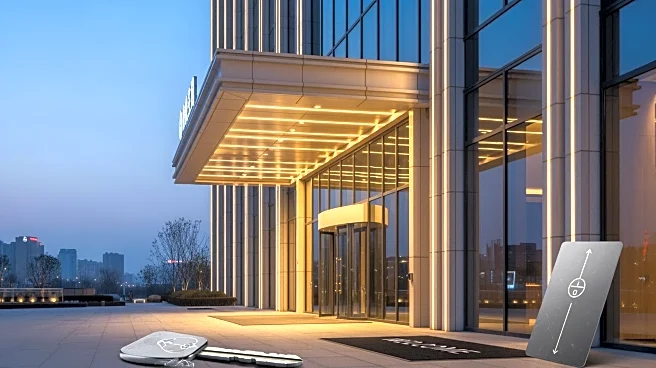What's Happening?
Breuninger, Germany's last independent premium department store, has been up for sale for over a year, but no deal has been finalized. The sale process, known as 'Keystone,' aims to attract strategic buyers and financial investors. Despite interest from over 30 parties, including international department store chains and institutional investors, the transaction remains complex due to the combination of retail business and real estate ownership. Breuninger's strong brand, customer loyalty program, and digital sales share make it an attractive asset, but the integrated structure poses challenges for potential buyers.
Why It's Important?
The stalled sale of Breuninger highlights the complexities involved in transactions that combine retail operations with real estate assets. This situation underscores the challenges faced by premium retailers in maintaining profitability amidst changing consumer behaviors and market pressures. The outcome of this sale could influence the future of brick-and-mortar premium retail, setting a precedent for how similar businesses navigate the balance between maintaining brand identity and optimizing operational efficiency.
What's Next?
Potential buyers must consider strategic development options, such as expanding private labels, collaborating with luxury brands, and geographic expansion. However, these strategies require significant investment and a commitment to preserving Breuninger's premium character. The sale process may continue to face delays unless a buyer with a long-term strategic interest emerges, capable of strengthening the brand's positioning while driving growth.
Beyond the Headlines
The prolonged sale process may lead to uncertainty among Breuninger's workforce, affecting morale and productivity. Additionally, the integration of retail and real estate operations presents risks in terms of property valuation and long-term stability. The future owner must balance efficiency improvements with maintaining the brand's essence to avoid customer attrition.










